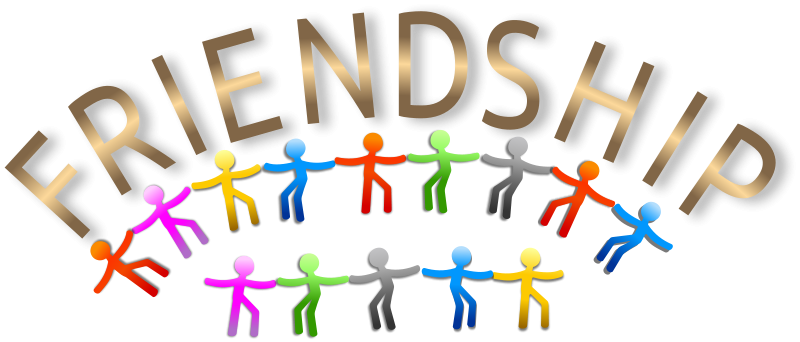
Friendships are often considered the bedrock of our social lives, providing a profound sense of connection, unwavering support, and consistent joy. Unlike the sometimes tumultuous nature of romantic relationships, supportive friendships frequently offer a stable and consistent anchor, enriching our health, mood, and overall well-being. The impact of a truly strong and supportive friendship is significant, fostering an environment where individuals can thrive both mentally and physically.
However, just as with any close bond, friendships are not immune to developing concerning patterns. There’s often a ‘honeymoon period’ in new friendships where initial warning signs can be easily overlooked, masked by the excitement of connecting with someone new and enjoying their company. This initial exhilaration can sometimes prevent us from recognizing patterns that, over time, can morph into detrimental impacts on our health and well-being, much like a romantic relationship that ‘crashes and burns.’ Given that we have the unique ability to choose the friendships into which we invest our precious time and energy, unlike our families, it becomes crucial to approach these relationships with a discerning eye.
While discussions of ‘red flags’ are predominantly associated with dating and romantic relationships, it’s equally important to shine a spotlight on our friendships. These vital connections profoundly influence various facets of our lives, and as such, they warrant a closer and more deliberate examination. Understanding the subtle yet significant indicators of an unhealthy dynamic is not about being overly critical, but rather about safeguarding our emotional landscape and ensuring that the people we surround ourselves with genuinely uplift us. What follows is a deeper dive into some of the most critical friendship red flags that you should never ignore.

1. **They Talk Badly About Others in Front of You**It might initially feel like a special bond is forming when a new friend confides in you, sharing grievances about other people in their lives. This shared ‘secret’ or insight into their discontent can create a sense of closeness, making you feel chosen and trusted. You might believe that by sharing such intimate details, they are demonstrating a deeper level of connection and honesty with you, distinguishing your relationship from others.
However, this seemingly intimate act often carries a significant underlying risk. If your friend frequently criticizes or is judgmental about their other friends or individuals in their life, a natural and important question arises: “what is stopping them from doing the same with you?” The pattern of consistent dissatisfaction with most people suggests a deeper issue than mere confiding.
Over time, as this behavior continues, a subtle but insidious sense of unease can begin to creep in. You may start to anticipate when the ‘tables will turn,’ and you will become the subject of their critical conversations when you are not present. This anticipation fosters an environment of distrust, compelling you to question the sincerity and loyalty of your friend. It subtly erodes the psychological safety of the friendship, making you wonder if your own actions or words will eventually be dissected and criticized behind your back.
The continuous act of talking poorly about others reveals a core aspect of their character that is worth acknowledging. It may indicate a propensity for negativity, a lack of empathy, or an inability to maintain strong, loyal connections with people. Recognizing this pattern early can help you understand the potential long-term implications for your own sense of security and trust within the friendship. A healthy friendship is built on mutual respect and loyalty, extending even to those not present in the conversation.

2. **You Can’t Be Yourself Around Them**At the heart of every truly supportive and healthy friendship lies the freedom to be authentic. It is in this space of genuine self-expression that the most profound and authentic connections are developed. When you can comfortably shed your inhibitions, share your true thoughts, and express your feelings without fear of judgment, the friendship flourishes into a safe haven for your genuine self.
Conversely, a significant red flag emerges if you frequently find yourself ‘closing up’ or consistently maintaining your ‘guard up’ around a particular friend. This self-protective posture is an intuitive response to an environment where you don’t feel entirely safe to be vulnerable. It suggests that there might be an unspoken pressure to conform, to censor your true personality, or to present a version of yourself that you believe will be more acceptable to them.
The inability to be your authentic self around a friend hinders the very essence of a deep connection. It prevents the development of true intimacy and understanding, as the relationship is built on a facade rather than genuine interaction. Such a dynamic can leave you feeling emotionally isolated, even when in their presence, because your true self remains hidden and unacknowledged.
If you constantly feel like you cannot simply ‘just be yourself,’ it becomes crucial to reflect on the origins of these ‘misgivings.’ Are you worried about their reaction? Do you fear judgment or criticism? Understanding the root cause of this self-censorship is the first step toward addressing the imbalance and either fostering a more open dynamic or recognizing that the friendship may not be a healthy fit for your authentic self. The goal of friendship is to feel seen and valued for who you truly are.
:max_bytes(150000):strip_icc()/GettyImages-1051395358-2d62e9c50cb94d50b228333fff401d0a.jpg)
3. **You Walk on Eggshells Around Them**In the landscape of a healthy and balanced friendship, there should be an inherent freedom to voice your feelings and openly share your thoughts on various subjects. This emotional safety net allows for honest dialogue, constructive disagreement, and the natural ebb and flow of a dynamic, evolving relationship. It implies a mutual respect for each other’s perspectives and emotional boundaries.
However, a particularly troubling red flag arises when you often find yourself treading lightly, metaphorically ‘walking on eggshells’ around a friend. This behavior signifies a deep-seated fear that expressing your genuine sentiments or sharing your honest opinions will trigger a negative, possibly volatile or disproportionate, reaction from them. The anxiety associated with their potential response can lead to self-censorship, where you suppress your own voice to maintain an artificial peace.
This continuous act of self-silencing leads to an emotional unsafety within the friendship. You may feel unable to share your authentic feelings or thoughts, not because you lack them, but because the perceived cost of expression is too high. This stifling environment prevents genuine connection and can lead to a build-up of unspoken resentment and frustration, further damaging the relationship.
Ultimately, if you consistently feel unable to share how you truly feel or what you genuinely think, it is a clear indication that you do not feel ’emotionally safe’ with this friend. This lack of safety suggests that the friendship may not be the ‘right fit’ for your emotional well-being. A truly supportive friend values your voice and allows you the space to express yourself freely, even when there are differences in opinion, fostering an environment where both individuals can feel heard and respected.

4. **You Feel Drained After Interactions with Them**Consider a moment to compare and contrast how you genuinely feel after spending time with different friends in your life. Do you typically leave interactions feeling energized, perhaps neutral and content, or do you consistently feel profoundly drained? This simple yet powerful exercise can reveal a great deal about the health and impact of your friendships.
It is often said that ‘sometimes your body knows before you do when a friendship isn’t healthy for you.’ Our physiological and emotional responses can be incredibly insightful, acting as an internal barometer for the quality of our relationships. If you notice a consistent pattern where every encounter with a particular friend leaves you feeling emotionally, mentally, or even physically depleted, this is an incredibly significant sign that demands your attention.
This draining sensation is not merely a fleeting mood; it’s a consistent signal that the friendship may be more of an emotional burden than a source of support. Such a dynamic can contribute to increased stress, anxiety, and a general sense of being overwhelmed, rather than uplifted. Friendships are meant to ‘add to your life, not make it feel like extra homework,’ as one observation aptly puts it.
Paying close attention to these post-interaction feelings is a vital act of self-care. It indicates that the energy exchange in the friendship is imbalanced, with you giving more than you receive, or perhaps dealing with excessive negativity or demand from the other person. Recognizing and acknowledging this persistent feeling of being drained is a critical step towards re-evaluating the friendship and protecting your own well-being.

5. **They Tell You Things Others Shared with Them in Confidence**When a friend shares secrets with you that were entrusted to them by others, your initial reaction might be one of flattery and privilege. You might feel ‘honored’ that your friend chose to share these private details with you, seeing it as a testament to their trust and the depth of your bond. This act can create a temporary sense of exclusivity, as if you are being brought into an inner circle of confidence.
However, over time, this pattern of disclosing confidential information can paradoxically begin to ‘build distrust’ within your own relationship with them. As you witness their willingness to reveal others’ private matters, a nagging question inevitably arises: if they are so readily sharing secrets from other friendships, what stops them from doing the same with your own?
This growing uncertainty can subtly compel you to ‘edit what you say’ and become overly ‘careful regarding what you share’ with your friend. You may find yourself consciously or unconsciously withholding personal information, private thoughts, or sensitive experiences due to ‘increasing uncertainty regarding who they will share your private information with.’ The once-flattering act transforms into a source of anxiety and guardedness.
The erosion of trust in a friendship is a serious red flag. Confidentiality is a cornerstone of deep, secure connections, and its repeated violation, even with regard to others, undermines the foundation of reliability in your own relationship. This dynamic prevents the development of true vulnerability and openness, as you can never be fully certain that your private life will remain private with them.

6. **The Friendship Feels One-Sided/Non-Reciprocal**A truly healthy and flourishing friendship is characterized by a natural and balanced ‘give and take’ – a mutual exchange of effort, attention, and support. Both individuals should feel equally invested in reaching out, checking in, and initiating plans, creating a dynamic where the friendship is consistently nurtured by both parties. This reciprocity ensures that neither person feels solely responsible for maintaining the connection.
A significant red flag emerges when the friendship consistently feels ‘one-sided’ or ‘non-reciprocal.’ You might find yourself perpetually being ‘the friend who is reaching out, checking in, and initiating plans,’ while your efforts to maintain the bond often go unreciprocated. This imbalance can lead to a growing sense of frustration and exhaustion, as you carry the emotional and logistical heavy lifting of the relationship.
Furthermore, the focus of conversations often becomes a telling indicator. In a one-sided friendship, you may notice that the dialogue ‘primarily centers on them and their life,’ with your friend rarely inquiring about your well-being, experiences, or challenges. This lack of genuine interest in your life, contrasted with their expectation of your attention to theirs, underscores the non-reciprocal nature of the bond.
Research published in the *Journal of Research on Adolescence* has provided valuable insights into this dynamic, revealing that ‘mutual help, where both people give and receive support, played a key role in the maintenance of long-term friendships.’ Conversely, the study found that ‘one-sided help was less stable and more transactional.’ If you consistently feel like a ‘lifeline’ rather than a valued friend, it may be time to engage in a conversation about this observed pattern to determine if the friendship can evolve into a more equitable and healthy connection.




.jpg)